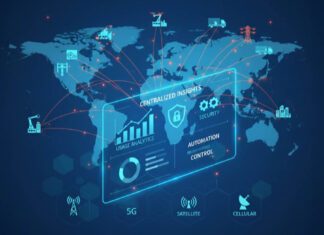In the present digital age, online privacy and security have become a major concern. Whether browsing on public Wi-Fi or accessing geo-blocked content in your region, a good VPN can be your first choice. But do you know how to properly set up and use a VPN on an Android phone? Do you know about the right settings? Well, I have used many VPN services over the years and here I will give you some practical tips based on my experience.
So, if this is your first time and want to know how to use VPN on mobile, then my this beginner’s guide will help you a lot and you can access the banned content with confidence on your device.
Why is VPN important?
As published by Zhiwei Xu and Jie Ni on IEEE, a VPN set up a private network on the public network and encrypt all communication, ensuring data remains secure and confidential. Despite this, some people think that VPN is only for piracy or accessing blocked websites, but in reality it plays a very important role in protecting your privacy.
For example: I once used free Wi-Fi at Delhi airport and one of my social media accounts got hacked the same day. Later, it was found out that hackers had stolen my data on that unsecured network. Since then I always use VPN, especially on public networks and it keeps my personal data safe!
Which VPN to choose?
There are many VPN services available in the market, such as ExpressVPN, NordVPN, Surfshark, HideMyAss, and ProtonVPN. As I have tested, all are equally good and offer decent services. ExpressVPN is the fastest and most reliable, but it’s a little expensive. If you’re on a budget, Surfshark is a good option. Free VPNs like ProtonVPN are also good, but they have speed and server limitations. I recommend getting a free trial first, then buying a premium plan.
So based on your budget and requirement, you can pick any reputable or trusted VPN provider. I mostly use Surfshark while traveling so I will let you know VPN about this in detail below.
How to set up a VPN on Android?
Setting up a VPN on Android is pretty simple. First, you need to download a VPN app. I’ve explained this using Surfshark as it’s more user-friendly.
- Download the VPN app from the Play Store: Install Surfshark or any other VPN from the Google Play Store. You can even go to official VPN website and download the Android version from there!
- Open the app and sign up: Login after creating an account.
- Connect to a server: Choose one of the countries listed in the app. If you want to watch Netflix from the US, connect to a US server.
- Start protection: All your internet traffic will be encrypted once you hit the connect button.
Did you know that Android also has a built-in VPN option? VPN can be configured manually by going to Settings > Network & Internet > VPN. In OnePlus 10R, it is under Connection & Sharing > VPN or you can search directly for VPN and configure it as shown below:
Go to Settings > Network & Internet > VPN
Tap Add VPN profile
Enter these details:
Name: (Any name you want, e.g., “My VPN or First VPN”)
Type: Select L2TP/IPsec PSK or whatever recommended
Server address: Enter the IP address
L2TP secret: leave blank
IPsec pre-shared key: Enter as provided by VPN provider
Username: Enter username (Shared by VPN Provider)
Password: Enter password (Shared by VPN Provider)
Save and connect and start browsing.
If all details are okay, then it will be connected and now you can use the restricted, Geo-blocked websites/content on your Android device without exposing the real IP. You might get slow speed but you will get what you need. So in this method, you don’t need to download the VPN app, the VPN creds now saved in your mobile which you can turn on and off as per your need!
How to use VPN correctly?
Just turning on VPN is not enough. I have seen many times that VPN leaks even after connecting. To avoid this, keep in mind some important things:
- Use Kill Switch: This feature blocks the internet if the VPN connection drops. ExpressVPN and NordVPN have this option and protect your digital data from accidental exposure.
- Change servers regularly: Using the same server for a long time can reduce speed. So it is advised, change the servers time to time.
- Try DNS leak: Go to the “DNS Leak Test” website (https://dnsleaktest.com/) and check whether your real IP is exposed or not.
Does VPN slow down the internet?
Yes, using VPN has a slight impact on internet speed, because your data is encrypted and passes through another server. But this effect is less in good premium VPNs like ExpressVPN. When I tested, I found that connecting to an Indian server reduced the speed by only 10-15%, but connecting to a server in the US or Europe reduced the speed by 30-40%.
On 5G mobile data, you will hardly notice any delay in speed. But if you use 4G data, then you will get the result with a slight delay. So internet speed also play a big role when you use VPN!
Are free VPNs safe?
Many free VPN apps log your data and sell it to third parties. A study by CSIRO discovered that 75% of free VPNs track user activity, 18% used no encryption at all and 16% use packet injection.
Apart from that, VirusTotal has also confirmed in their report that, 38% of free VPN apps contain some malware presence, means these type of free services lack proper security measures.
So if you are choosing a free VPN, rely on trusted options like ProtonVPN or Windscribe. We recommend, get a premium VPN as it is quite safe, secure, and works everywhere on all type of devices!
Final tips
VPN is a powerful tool, but it should be used wisely. Always use a VPN if you are doing online banking or shopping. But VPN use is restricted in some countries, so check local laws first.
If you are using VPN for the first time, start with user-friendly apps like Surfshark or NordVPN. Gradually you will understand its importance and you will make it a part of your digital life yourself.

